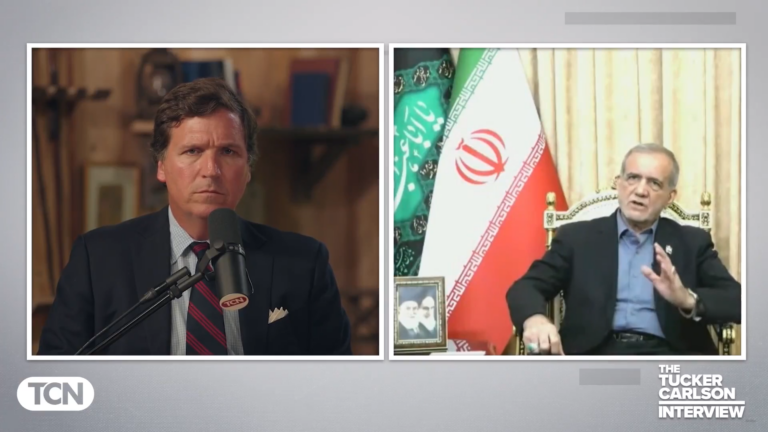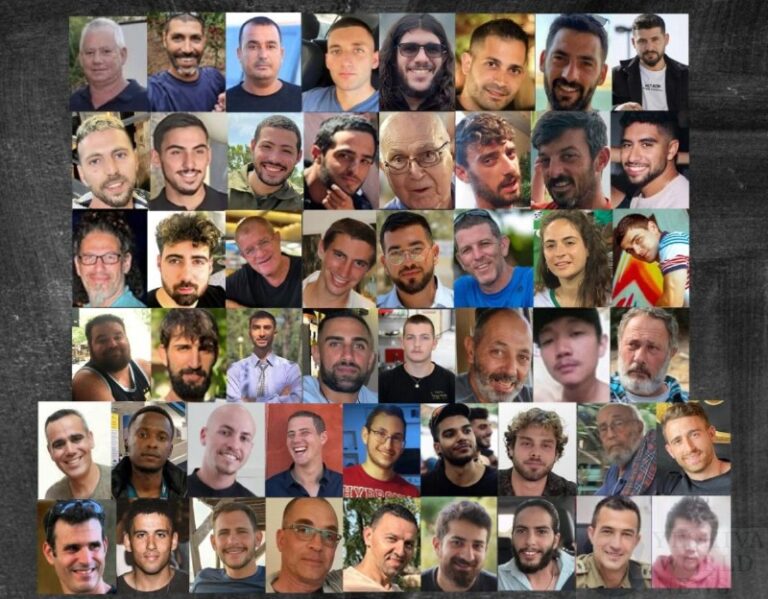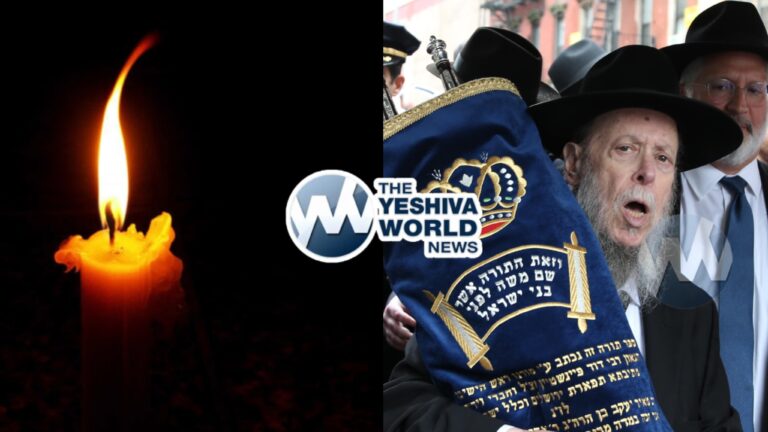 Holding a prime time press conference on Wednesday night the eve of 19 Kislev, Labor party leader Yitzchak Herzog and The Movement party leader Tzipi Livni explained the deal they signed to run under a combined ticket in the upcoming elections.
Holding a prime time press conference on Wednesday night the eve of 19 Kislev, Labor party leader Yitzchak Herzog and The Movement party leader Tzipi Livni explained the deal they signed to run under a combined ticket in the upcoming elections.
Herzog announced that if elected to head the coalition, he will serve as prime minister for the first two years of the four-year term, after which time he will rotate with Livni, who will serve as prime minister for the next two years. Three members of Livni’s The Movement party will receive guaranteed slots on the Labor lineup, including Livni is the second slot, Amir Peretz in the first ten and a third slot in the 10-20 lineup.
What has many scratching their heads is the fact that Herzog, who heads a party with 15 seats that is expected to grow agree to a rotation of the premiership with Livni, who heads a party with 6 seats that is not expected to make the minimum threshold in the next Knesset. Simply stated, even Herzog supporters feel that he overpaid to bring Livni on board for she is clearly desperate to find a new political home to prevent being locked out of the 20th Knesset.
In response to the announced alliance, Likud Central Committee Chairman MK Danny Danon said, “Tzipi Livni has broken all records in her political hypocrisy. She began her career in the Likud, moved on to Kadima, founded The Movement and now joined The Labor Party. Who knows where her next stop will be,” said MK Danon.
“Livni’s alliance with Herzog is Abu Mazen’s dream team. There is no doubt what he could expect from such a radical left-wing government; dangerous concessions in Jerusalem and throughout are homeland that are sure to lead to a deterioration in the security situation,” Danon concluded.
(YWN – Israel Desk, Jerusalem)











8 Responses
and what if the knesset dissolves before 2 years, livni wont be pm (not saying she has a chance anyways)
1. Herzog paid too much to get Livni. It wasn’t clear she would have passed the threshold. He gets a bunch of losers (who in America would be seeking real jobs, but in Israel stay in parliament due to proportional representation) including one (Livni) as a co-head. If Livni had much of a following, she would be Prime Minister. She is becoming something of a “Harold Stassen” type figure.
2. Livni is hardly a socialist. While her father was a Herut leader, her ideology is more like the “Liberalim” wing of old Herut-Liberalim block that evolved into Likud. Her presence near the top of the ticket will cost Labor votes from its traditional membership, benefiting Meretz.
3. The only way Labor can win is by being able to form a coaltion that includes the anti-zionist Arab parties and the Hareidim, OR by including right-wing parties such as Yisrael Beiteinu and Bayit Yehudi, OR by forming a coalition with Likud. None of these are likely.
Herzog just proved he is not qualified to be Prime Minister. He made a smart move with having Livni join him since they get more seats, however, Livni is not liked, she had very little to offer overall (just 2-4 seats) and Herzog negotiated away 1/2 of a Prime Ministers term of office, if ch’v they win.
It just proves how poor his negotiating skills are that he was suckered so easily. Livni would have easily accepted the same position she had in the defunct coalition.
we cannot allow a woman to becomme primve minister, remember Golda Meir and her incompetance led to many soldiers dying during the Yom Kippur War, plus its not the Yiddish mechalech
nowecant:
1. so you would prefer a male fool to a competent women
2. you would prefer a male apikores/anti-semite to a frum woman
3. actually there have been female leaders in the past – its uncommon since most women attach a higher priority to being mothers which doens’t leave time for politics
4. If you want to blame someone for the Yom Kippur, Moshe Dayan is probably more to blame, and he was very male.
Lo alaynue
To No. 4
If you are joking, you sense of humor is very sick. If you are serious, then know that you are going against the views of many gadoyley yisroel and chashuve rabbonim who have repeated said that there is no basis in daas torah to deny women a leadership role in secular government institutions. If you want to live in a dark cave and deny the role of women, please stay in your cave and don’ insult the intelligence of millions of yiddeshe women who every day contribute much to the economic and political success of EY.
Q. Do you agree with Rabbi Shlomo Aviner that women should not stand for the Knesset?
A. The sages say, “Man or woman… the Divine Spirit rests in accordance with their deeds” (Tanna d’Bei Eliyahu Rabbah 9, discussing Judges 4:4).
Yet in ancient times women were excluded from “the seven good men of the city” who constituted the community council. We know women were “Mothers of the Synagogue” (probably as leading donors) but they were unheard of in community government. Their capability, recognised in chapter 31 of Proverbs, was not denied, but it was felt that their influence should be behind the scenes because of the modesty principle established by Psalm 45:14, kol k’vudah bat melech penimah – “the whole glory of the king’s daughter is inward”.
Maimonides built on earlier sources to codify the rule that women should not be public leaders. He quoted Deut. 17:15 to say that a monarch had to be male – Melech v’lo malkah – and said, “Likewise with all appointments, only a man may be appointed” (Hilchot M’lachim 1:5).
A number of questions can be asked about this ruling. Does it apply only to monarchical office? Does it apply only to autocratic rule? What if the woman is elected for a limited term and has no coercive power? What if her position is accepted by the community?
These were among the issues examined in an early 20th century controversy in Eretz Yisra’el about women in public office, and Chief Rabbi Ben-Zion Uzziel gave a notable permissive ruling.
In synagogues – especially in English-speaking countries – the question of women’s involvement became urgent. The German orthodox leader, Rabbi David Hoffmann, ruled in 1919 that “women may vote but not be voted for”. Six stages of development followed – women as synagogue members in their own right; women as synagogue voters; women as synagogue delegates to other bodies, e.g. Kashrut Commissions; women as non-voting observers at synagogue board meetings; women as synagogue board members with voting rights; and in a few synagogues, women as president/chairman.
Rabbi J David Bleich writes in Contemporary Halachic Problems, II: 1983: “The rabbi who is firmly convinced of the cogency of the arguments of the permissivists is privileged to act in accordance with his views…” (p. 266).
A few Israeli congregations allow women on the va’ad. Hardly any have considered having a woman president.
Going back to the Knesset and Rabbi Aviner, even he seems to recognise the reality that women are integral to the government process. There have been and are women cabinet ministers, party heads and a female prime minister, and a female acting president of the State. Rabbi Aviner’s concern seems to have been the deeper issue of whether women should take part in the rough-and-tumble of politics, in view of Rav Kook’s fear that political life besmirches those who get involved in it, both males and females.